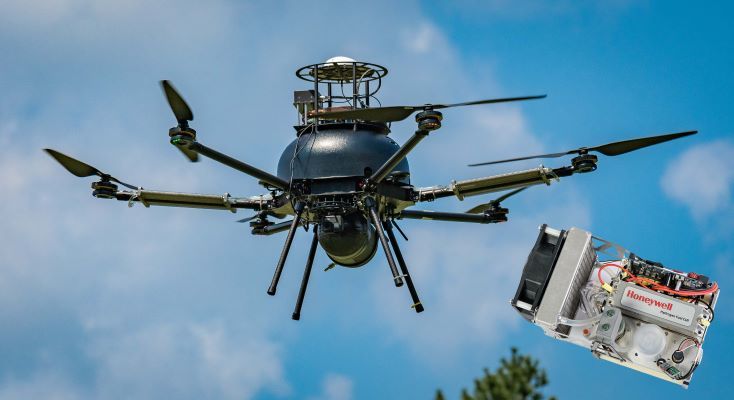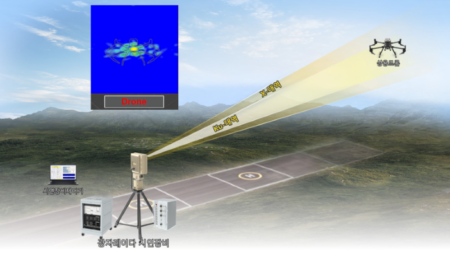Honeywell is partnering with the USA’s National Renewable Energy Laboratory to develop a prototype of a cartridge-based hydrogen fuel storage system for use in drones.
The one year Fuel Additives for Solid Hydrogen (FLASH) Carriers in Electric Aviation project will also look at how to commercialize of the cartridges. Honeywell is providing testing for the fuel cartridge technology, supply chain support, prototyping and fuel cell evaluation to qualify for the project.
The FLASH project will use a new hydrogen carrier technology developed at the National Renewable Energy Laboratory (NREL) which uses a solid material that can rapidly release hydrogen gas for use by a fuel cell. The material has a high hydrogen capacity and can operate at low temperatures of around 100°C (212°F).
The hydrogen cartridges will be be coupled to a fuel cell to enable the long-range flights and higher payload capacities. It will also enable sensitive drone applications like atmospheric monitoring, where exhaust gases would reduce performance.
Katherine Hurst, NREL senior scientist and group manager said, “Today’s long-range drones are typically powered by internal combustion engines. While they provide the required range that battery-powered electric UAVs lack, these engines have issues with excessive noise, vibration and emissions, including carbon emissions.
“This is an exciting opportunity to demonstrate the performance of hydrogen storage materials that we developed in our laboratory together with Honeywell to fuel a real-life flying vehicle.”
“This is a dream project for a national lab researcher,” said Steve Christensen, one of the NREL leads on the project . “Honeywell has already built and tested devices that can use our materials, giving us the chance to drop our technology directly into their systems and move this promising drone fuel toward commercialization through collaborative research and development.”
Dave Shilliday, vice president and general manager, Urban Air Mobility and Uncrewed Aerial Systems at Honeywell Aerospace said, “Hydrogen can offer significant advantages for electric vertical take-off and landing systems in terms of endurance and range. Additionally, using hydrogen as a power source can also significantly expand the possibilities of UAVs beyond the limitations posed by battery-electric powertrains. Honeywell will work with NREL to develop the necessary hydrogen-related technology to contribute to the further growth of the industry.”





